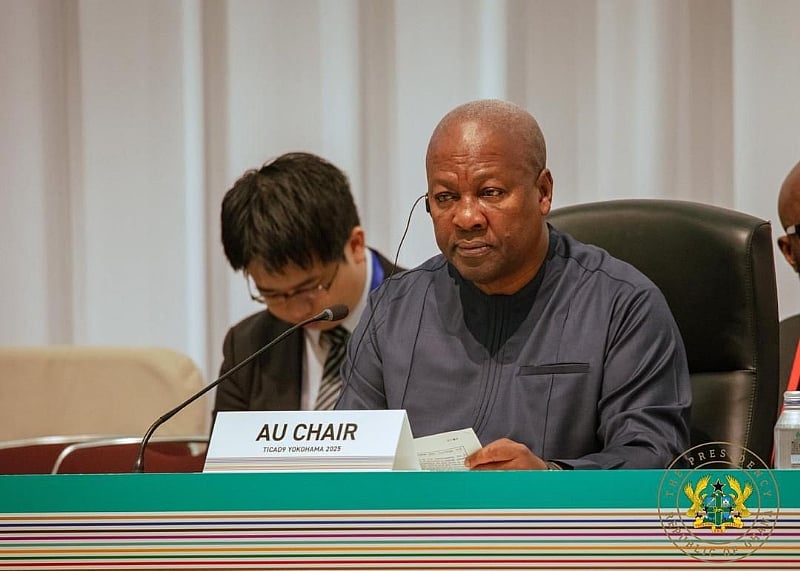The decline in external funding for healthcare in Africa has triggered a clarion call for health sovereignty, championed by President John Dramani Mahama of Ghana. Addressing African heads of state at a meeting organized by the Africa Centres for Disease Control (Africa CDC) during the 80th United Nations General Assembly, President Mahama emphasized the urgent need for the continent to take control of its health destiny. This imperative arises from the significant cuts in international assistance budgets, particularly from the United States and European nations, which pose a severe threat to the progress made in public health across Africa. The dwindling financial support necessitates a shift in strategy, moving away from dependence on external aid towards a more self-reliant healthcare system capable of sustaining essential services for African citizens.
Mahama’s appeal underscores the disturbing trend of waning international commitment to health and humanitarian aid. The United States Congress, for instance, has drastically reduced its international assistance budget, leading to the termination of billions of dollars in USAID contracts. Similarly, European countries are reallocating their overseas development funds towards increased defense spending. These actions have far-reaching consequences for African nations that heavily rely on international aid for healthcare services, potentially jeopardizing the accessibility of crucial medicines, vaccines, and overall health outcomes. The President cautioned that without decisive action and the development of new strategies and partnerships, Africa risks regressing in its health progress, leaving its citizens vulnerable and devoid of essential medical resources.
President Mahama advocated for a paradigm shift in global health governance, emphasizing Africa’s active role in shaping the future of healthcare. He argued that Africa should not merely be a recipient of global health initiatives, but rather a co-convener, co-designer, and co-owner of the solutions. This call for increased autonomy aligns with the growing consensus on the need for a more equitable and representative global health architecture. As traditional donors retreat, Mahama urged African nations to step forward and invest in their own health systems, securing the well-being of their populations. He presented Ghana as a case study, highlighting the country’s proactive measures to achieve health independence and its commitment to strengthening healthcare infrastructure.
Ghana’s efforts towards health sovereignty include the establishment of the Ghana Medical Trust Fund, designed to finance treatment for non-communicable diseases, and the creation of a National Vaccine Institute with substantial seed funding. The National Vaccine Institute aims to transform Ghana into a hub for vaccine research and production, reducing reliance on imported vaccines and enhancing the country’s capacity to respond to future health crises. These initiatives demonstrate Ghana’s proactive approach to building a robust and self-sustaining healthcare system. Further reinforcing this commitment, the government is preparing to launch a free primary healthcare program, ensuring access to essential healthcare services for all citizens, regardless of their economic status.
Beyond Ghana’s domestic initiatives, President Mahama also highlighted the Accra Compact, launched at the African Health Sovereignty Summit held in Accra, as a blueprint for transforming global health governance. The Accra Compact outlines a vision for a more inclusive and equitable global health system, where African nations have a stronger voice in international decision-making processes. It emphasizes the importance of African leadership in shaping health policies and strategies that are relevant to the continent’s specific needs and challenges. The compact represents a collective commitment to strengthening African healthcare systems and promoting health sovereignty as a pathway to sustainable development.
In essence, President Mahama’s address serves as a powerful call to action for African leaders to prioritize health sovereignty in the face of declining international aid. He emphasizes the importance of self-reliance, proactive investment in healthcare infrastructure, local production of essential medical supplies, and greater African representation in global health governance. His message underscores the urgent need for a fundamental shift in approach, moving away from dependence on external funding towards a more sustainable and equitable model of healthcare delivery that empowers African nations to take control of their health destiny. The declining international support, while challenging, presents an opportunity for African countries to forge their own path towards health security and build resilient healthcare systems capable of meeting the needs of their populations.


